There are 23 teams in the Tour de France with a variety of sponsors: a mix of brands, wealthy individuals and governments. Let’s follow the money and then imagine if we could use every brand going.
UAE-Team Emirates (UAE flag, legally run out of Switzerland) is backed by the United Arab Emirates, a federation of kingdoms with Abu Dhabi as the capital, the oil and gas rich state. It’s a repressive place, migrant workers toil to build the shiny skyscrapers and if you dare use a VPN network in the country to watch a bike race abroad you risk being deported, even jailed. The Emirates name is also the airline, a big blue chip global sponsor in a peloton of mainly minor and local brands. The team can trace itself back to the old Lampre team and keeps Italian roots with a service course near Bergamo and they ride Colnago bikes with Campagnolo and retain eight Italian riders, down from ten last year.
- The team can be traced back to 1990 when it was Colnago-Lampre
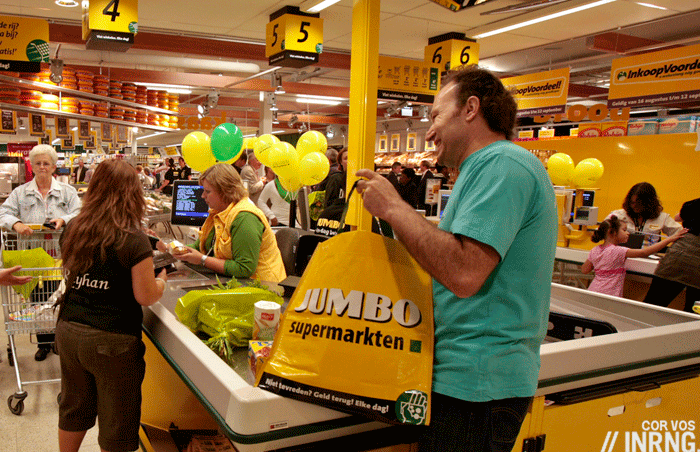
Jumbo-Visma (Netherlands) have Dutch supermarket chain Jumbo – say Yumbo – and Visma, a Norwegian IT services company. The team’s gone from one of the poorest in the World Tour to one of the best resourced, you might remember them racing as Blanco because they couldn’t find a sponsor in the wake of Rabobank pulling out following multiple doping scandals. Jumbo is family-owned, growing fast in the Netherlands to become one of the country’s leading food retailers and it is now expanding into Belgium. The supermarket’s payroll had been managed by a firm which was recently taken over by Visma… which came on board with the cycling team too after the connection was made at work.
- Goes back to 1984 and the Kwantum team then Superconfex, Buckler, Wordperfect, Rabobank, Belkin and LottoNL
Ineos (Great Britain) is a petrochemicals company that manufactures and supplies the chemicals to make the plastics that surround us and it’s grown so big it’s begun drilling for oil and gas to get its raw materials and the energy to power its chemical plants direct. It’s a private firm owned by James “Jim” Ratcliffe, Britain’s third richest person who left a career at oil major BP to buy up unloved chemical factories. He bought the cycling team for fun and also has a sailing team, owns French football club OGC Nice and is now a sponsor and part owner of the Mercedes Formula 1 team. Why? Because he can and it must be fun to own all these teams but they help with dealmaking too, especially the Formula 1 connection which offers VIP opportunities galore. Now they race as Grenadiers, not grenade-launching soldiers but the name of a car being produced in France as a side project by the company that should be available for sale in 2022.
- The team began in 2010 as Team Sky and was built on the back of Team GB’s success on the road and track
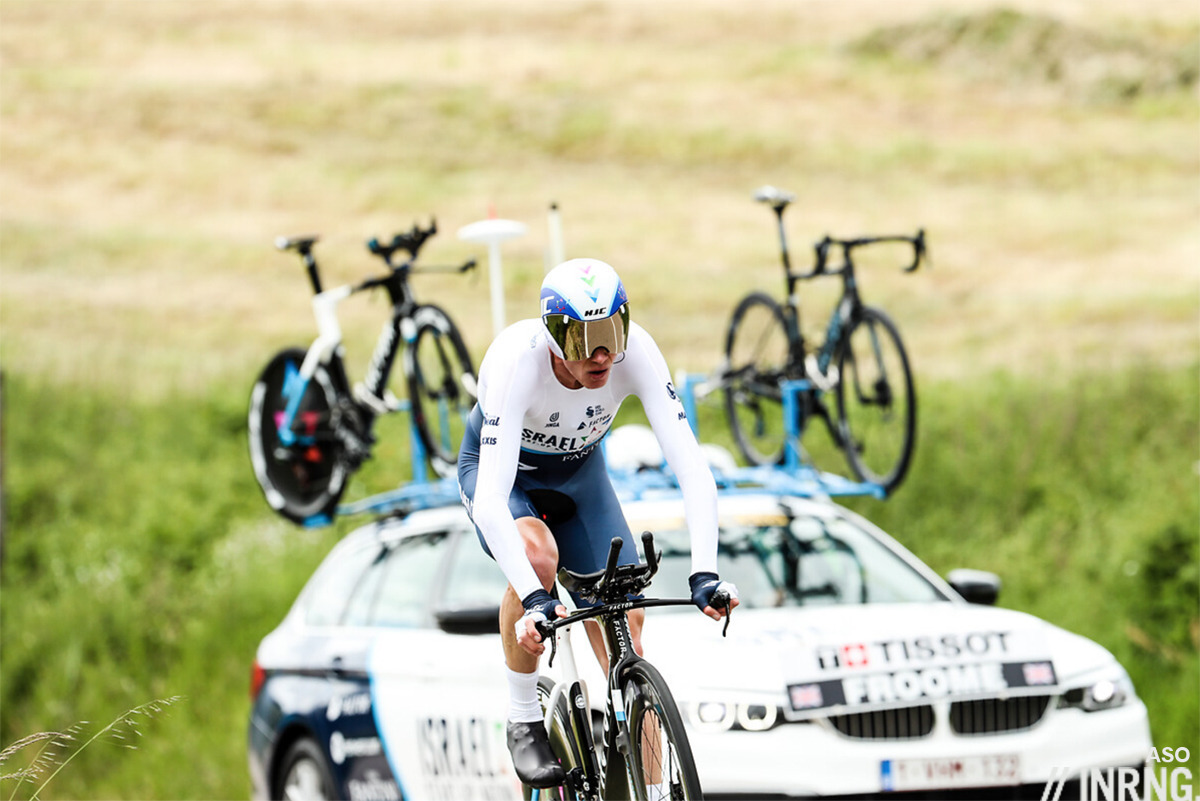
Israel Start Up Nation (Israel) is backed by Israeli-Canadian real estate billionaire Sylvain Adam, a keen cyclist who recently migrated to Israel and has been spending his fortune to promote the country. You might play Velogames and spend an imaginary 100 credits, Adams does it with his cash. He part-funded the Giro’s start in Tel Aviv. The “start up nation” label perplexes given the recruitment of older riders like Woods, Froome, Impey, Martin, Greipel, Vanmarcke and more who are all mature assets in the sporting sense, but the term refers to a non-profit tech hub in Tel Aviv that helps new businesses.
- Adams bought the Katusha licence which bought Oleg Tinkov’s Tinkoff Credit systems team which began in 2006
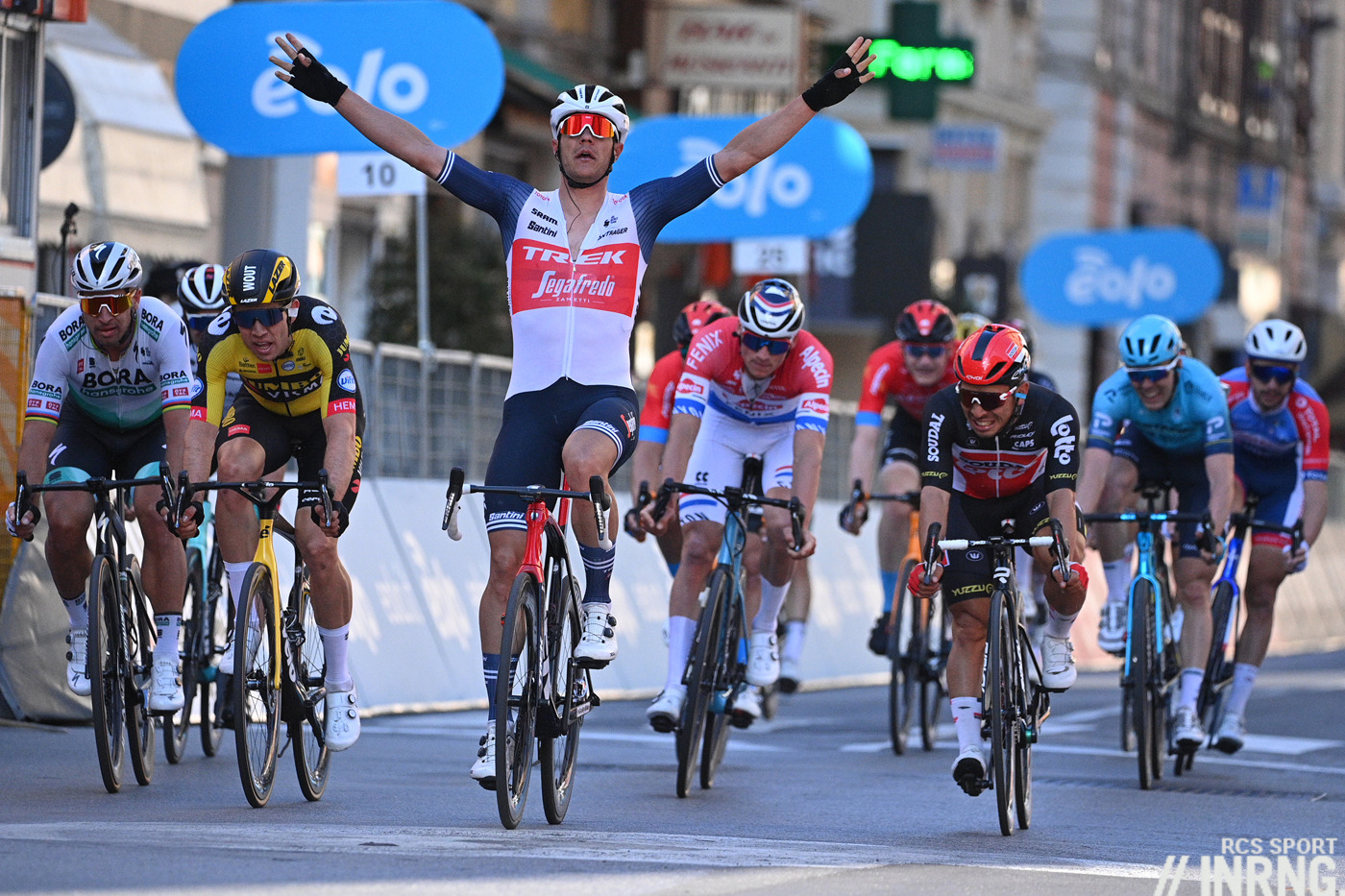
Trek-Segafredo (USA, Belgium) is the combination of US bike brand Trek and Italian coffee Segafredo. Trek should be familiar while Segafredo is an Italian coffee giant controlled by founder and gazillionaire Massimo Zanetti that floated on the stock exchange in 2016. They’re an American team but Signor Zanetti gives the team an Italian touch, the brand requires a figurehead Italian and explains why they’ve got Vincenzo Nibali, re-signed Guilio Ciccone and hired the very promising Antonio Tiberi. Jasper Stuyven’s Milan-Sanremo went down very well too.
- Began in 2011 as Leopard-Trek
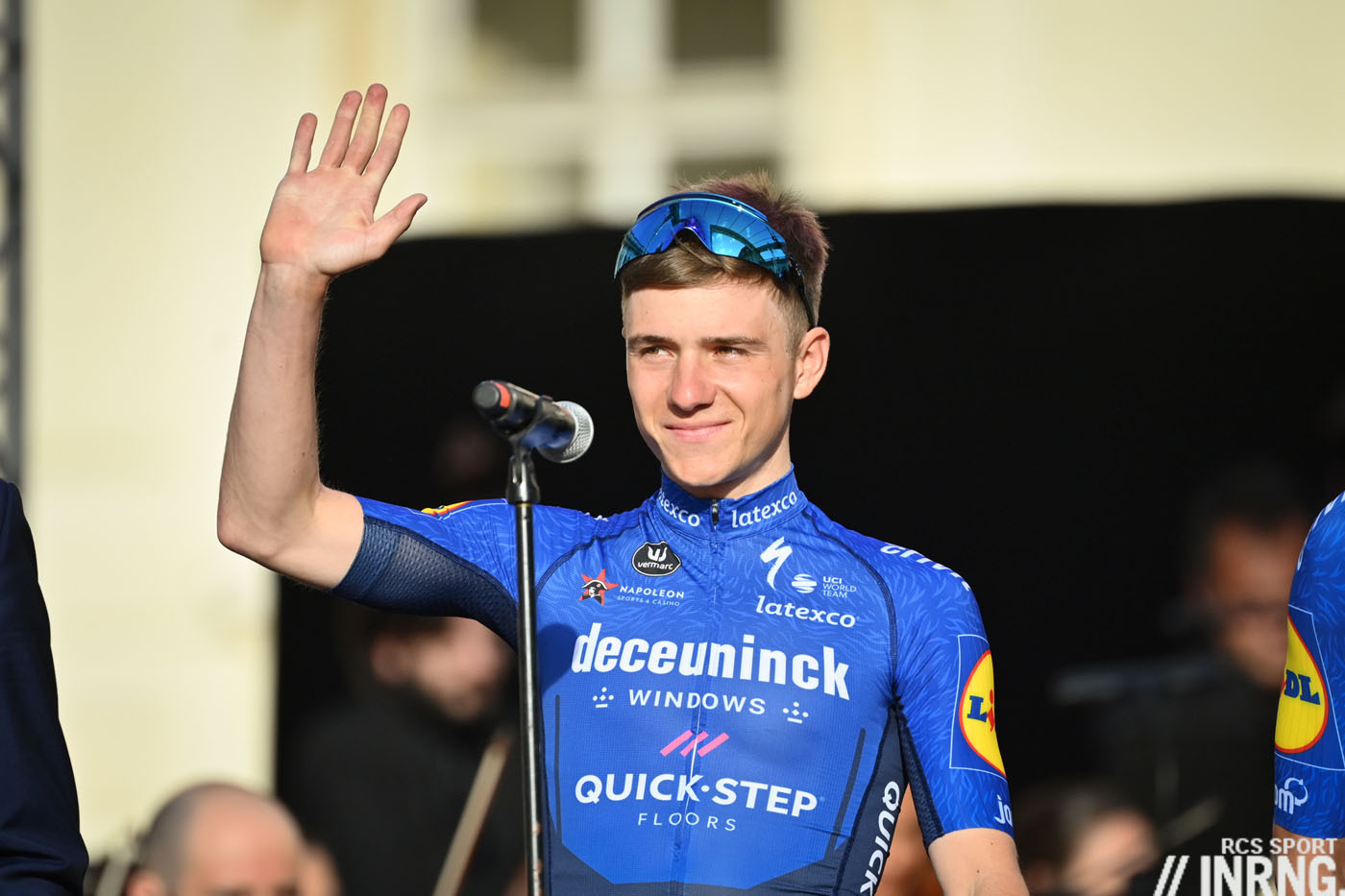
Deceuninck-Quick Step (Belgium, Luxembourg) has Deceuninck, a Belgian maker of PVC windows and cladding, mainly for industrial and office buildings with has sales across Europe and North America, it’s on the Euronext stock exchange with a market value of €405 million today and if they’ve felt like a fixture for years they’re leaving the sport at the end of the season. Co-sponsor QuickStep are onboard for many years to come and may seem quintessentially Flemish but it belongs to company founded in Amsterdam… Amsterdam, New York called Mohawk Industries, a giant supplier of commercial and residential flooring. The team vibes construction site which part explains the blue overalls – workers in Europe often wear blue – is owned by Zdeněk Bakala, a Czech billionaire, and he has helped to top up the budget over the years.
- Quick Step’s sponsorship began in 2003 but the team is an assembly of mergers over the years and can be traced back to the 1990s
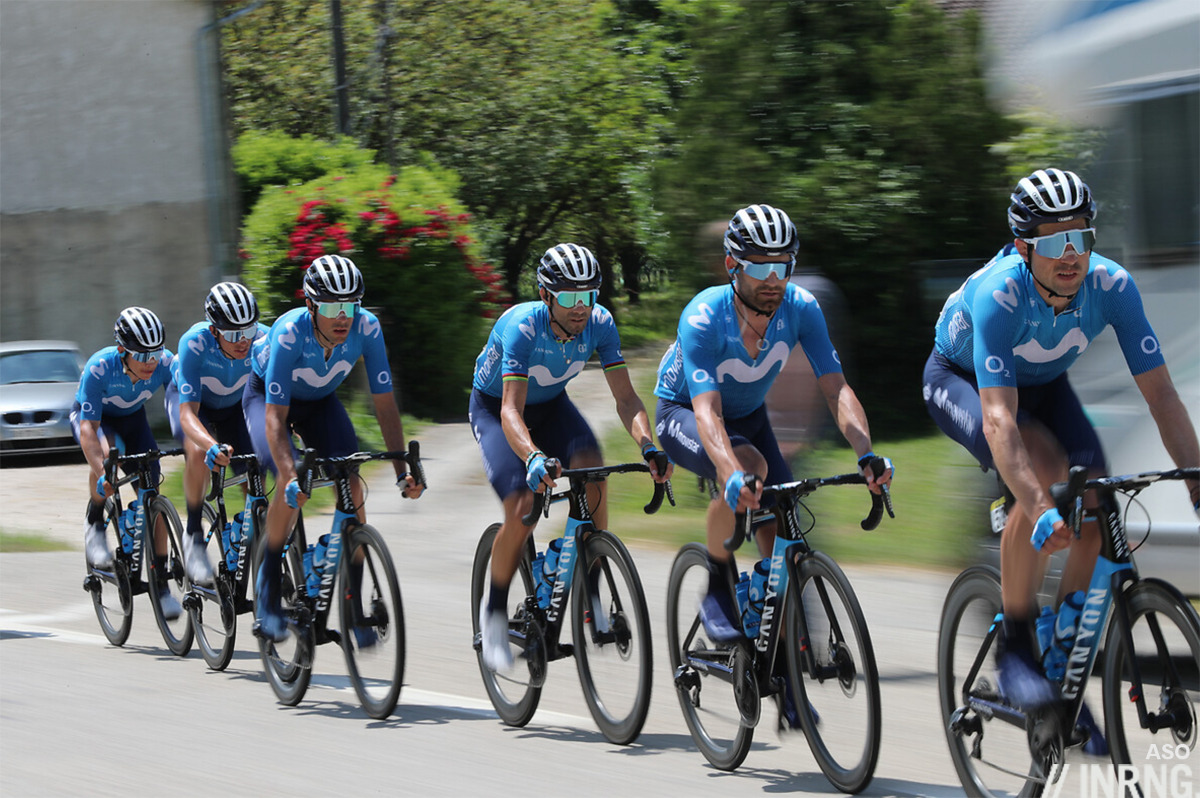
Movistar (Spain) is a mobile telecoms operator that belongs to Telefonica with activities in Spain and Latin America and has a sub brand in O2 which is used in Spain but also Germany, the UK and other markets. The sponsor has renewed for two more years which is good news but only for two which makes recruiting beyond this window harder.
- This is the longest surviving team in the peloton with a lineage going back to 1980 and the Reynolds team with José Miguel Echavarri at the helm for most of the time before handing over to Eusebio Unzué and now his Sebastian Unzué is picking up the reins
Bora-Hansgrohe (Germany) is a German team sponsored by two Mittelstand manufacturers. Bora makes kitchen extractor fans with the selling point of fans located beside the cooking hob rather than above The firm has experienced prodigious growth since sponsoring a team and has a cycling-mad boss, he even hired Les Amis de Paris-Roubaix, the group that protects the pavé, to come and lay cobbles on the driveway of the corporate HQ. Hansgrohe make plumbing parts like taps and shower heads and if they have a Germany history since being founded by Herr Hans Grohe in 1901 are these days majority owned by US conglomerate Masco. Don’t confuse them with arch rival Grohe, the plumbing version of Adidas vs Puma. The silent partner is Specialized, the influential bike brand was instrumental in bringing Peter Sagan to the team.
- The team started in 2010 as Team NetApp
Groupama-FDJ (France) is 50-50 joint venture owned by its two sponsors. If you want to sound très French then pronounce it Groupama-FDG. Groupama is a giant French mutual insurance company which means policy holders own the company, it’s not quite a non-profit but you get the picture. The rural logo hints at the original name Groupe des Assurances Mutuelles Agricoles. FDJ is short for La Française des Jeux. It’s the French lottery which is freshly privatised but has committed to fund both the men’s and women’s teams for several years so no change on the horizon. The team is quintessentially French but increasingly open with more and more foreign riders and Arnaud Démare’s sprint train at the Tour has a Swiss rider, an Australian, an Italian and should have a Lithuanian only Konovalovas had to leave following a crash on Saturday.
- The team began in 1997 and has kept the same sponsor all along; in 2012 it was FDJ-BigMat and then Groupama took a 50% share for 2018
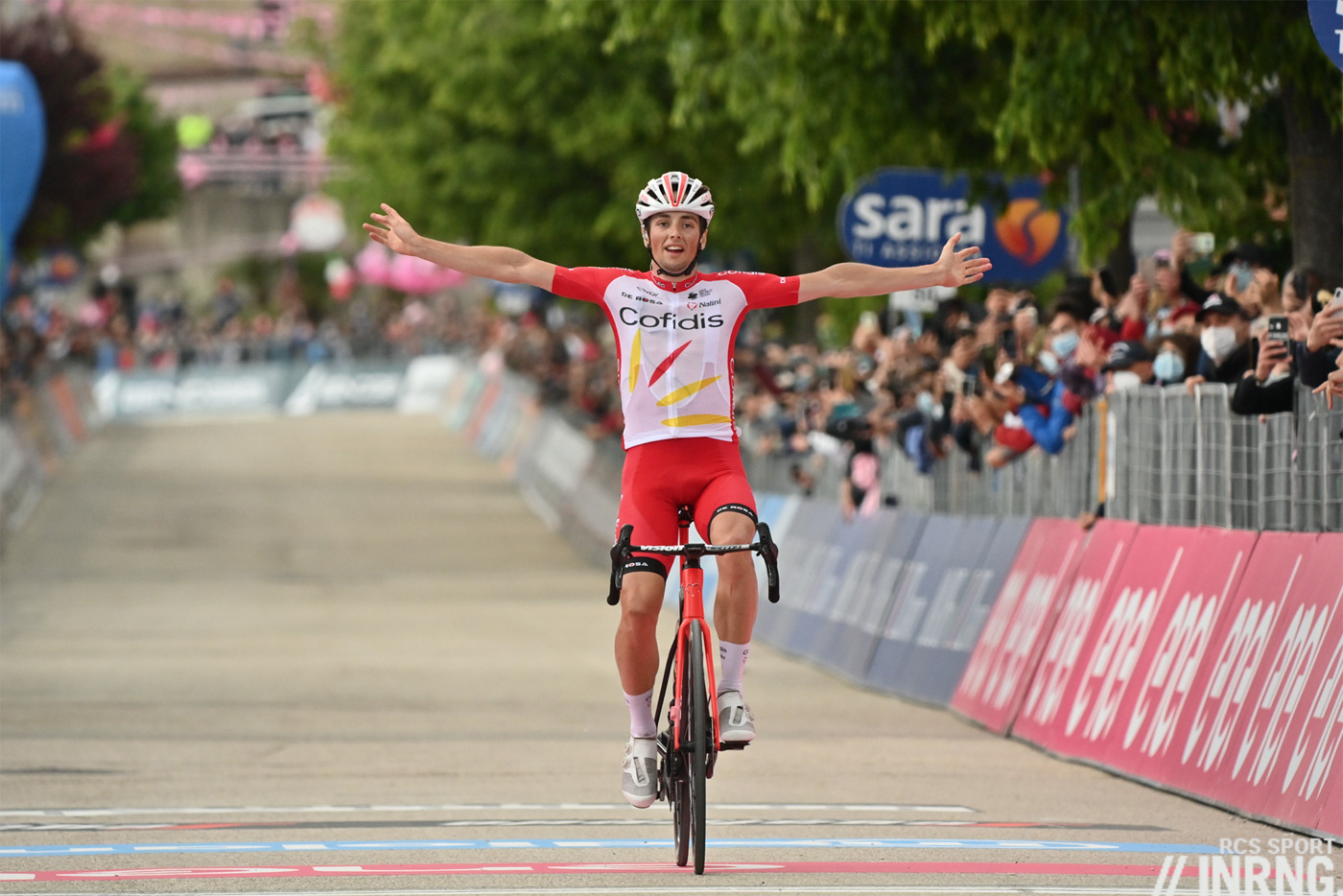
Cofidis (France) is a French consumer lending company which has now expanded to offering loans in Spain, Italy and central Europe, making the cycling team a useful marketing tool. It does subprime loans to those in need of small sums and while “cycling is the new golf” in markets like the US, UK and Australia, in France and other core nations it’s got a working class demographic and so Cofidis can reach its target market. They have a paracycling team and next year a women’s team is in the pipeline too. Cofidis is now part of the Crédit Mutuel financial group which also owns online bank Arkéa… which has a team too.
- A continuous presence since 1997
Alpecin-Fenix (Belgium) are a ProTeam, the confusing UCI label given to second tier squads. Only the team is by many measures superior to several WorldTeam squads. Alpecin is a shampoo brand from Germany with caffeine in it (reviewed on this blog) that co-sponsored the Katusha team but left and since returned. “Can a bald rider race for the team” is a question that bothers, presumably not. Fenix is an Italian company that makes plastic surfaces for kitchens, bathrooms and other uses, think Formica for the 21st century. Bicycle brand Canyon is also a silent partner keen to be linked to Mathieu van der Poel for as long as possible.
- It began as a cyclo-cross team in 2009
EF Education-Nippo (USA) is owned by EF Education First, a language education business that was started in Sweden and now HQ’d in Switzerland, presumably for tax rather than the mountain air. EF Education First sounds repetitive but loyal readers will know EF actually stand for Europeiska Ferieskolan rather than Education First, it’s Swedish for “European Holiday Schools” because this is what the founder Bertil Hult first named his venture and it’s grown to a big business making the Hult family billionaires. Over the winter the team picked up long term sponsor Nippo, a Japanese company that specialises in tarmac, from surfacing roads to runways and tennis courts and it has acted as a generous benefactor of Japanese cycling, funding riders race in Europe.
- The team began as a junior development team in 2003, became a pro team in 2007
Ag2r Citroën (France) features French social insurance company Ag2r La Mondiale, which offers top-up health insurance and pension plans to savers in France. A rival to Groupama, it’s also mutually-owned and has grown via mergers to become one of France’s biggest insurance companies. New for 2020 is co-sponsor Citroën, the car manufacturer that is now a brand within Stellantis, one of those companies named by an agency, that also owns Opel, Dodge, Maserati, Fiat and Chrysler among other brands. It’s a big sponsor that has helped the team up the budget but they’ve blown a chunk of it on ageing riders.
- Title sponsor since 2000 and the team was founded in 1992 as Chazal
Arkéa-Samsic (France) is a Breton team, with Arkéa being an online consumer banking brand inside the Crédit Mutuel group, the parent company of Cofidis too. Samsic is a recruitment agency also from Brittany but growing across Europe, it has operations in Italy for example which means the team likes to race in Italy too.
- The team began in 2005 as Bretagne–Jean Floc’h and under the patronage of regional political bigwig Jean-Yves Le Drian, who is France’s foreign secretary today
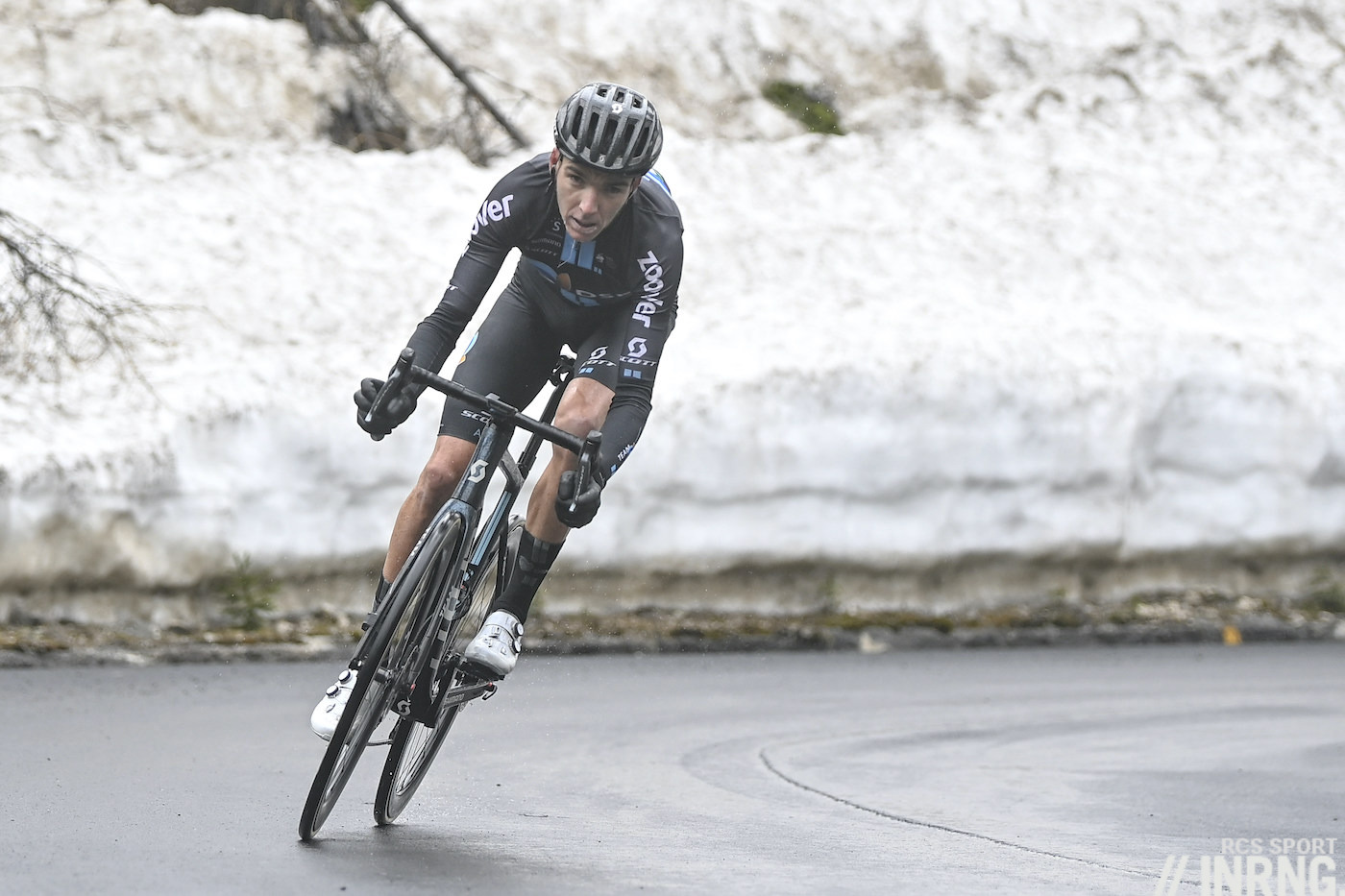
Team DSM (Germany, Netherlands) used to be Sunweb but the travel company beat a hasty retreat citing pandemic problems while DSM was ready to come on board. The initials are for Dutch State Mines, a company founded in 1902 to extract coal from the Limburg region and mercifully not rebranded today as, say, Dexterra, or some other bland name. Today it’s a life sciences group doing nutrition and other products, including Dyneema, a type of plastic that is popular as material for sailing boats and used in lightweight cycling shoes too.
- A quiet story of growth that goes back to Shimano–Memory Corp in 2005 via Skil and Argos Oil
Lotto-Soudal (Belgium) is the longest continuous team sponsorship in pro cycling with the Belgian state lottery backing a team through various name changes over the years ever since 1985 and the national lottery makes them a national team in Belgian, with the need to recruit both Flemish and Walloon riders. Soudal is a Belgian business making adhesives and sealants, a staple in DIY stores. Cleverly the race with Soudal-Lotto jerseys outside of Belgium because you can buy Soudal products all around the world but only Lotto tickets in Belgium. Despite the pedigree and the government backing this is firmly Belgium’s second best team, they almost never win in the classics but collect Tour de France stages.
- The team goes back to 1985
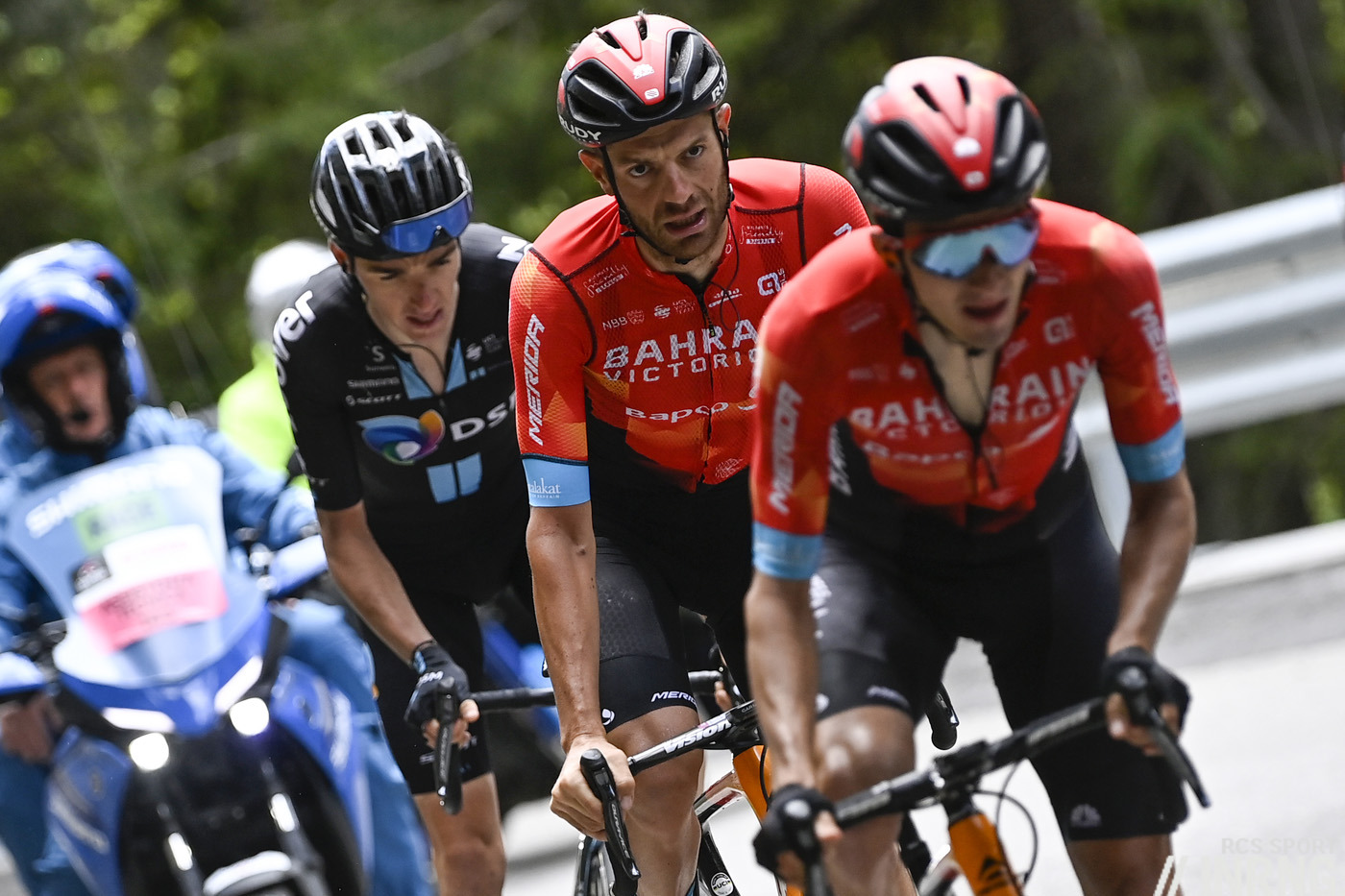
Bahrain Victorious (Bahrain) is backed by the oil-rich island in the Middle East. It’s harsh regime that sits right at the bottom of the press freedom index and other scores so this blogger better say nice things about because you can get jailed for tweeting criticism. It’s a case study in “sportwashing”, using sport to present an friendly image of the sponsor but it’s also personal hobby project led by a Bahrain prince who likes his cycling, triathlon and more. But it can do more too, across the Middle-East there are public health challenges with diabetes a big problem for a population that has become very sedentary, very quickly and the team is also used to promote activity and public health.
- Started in 2017
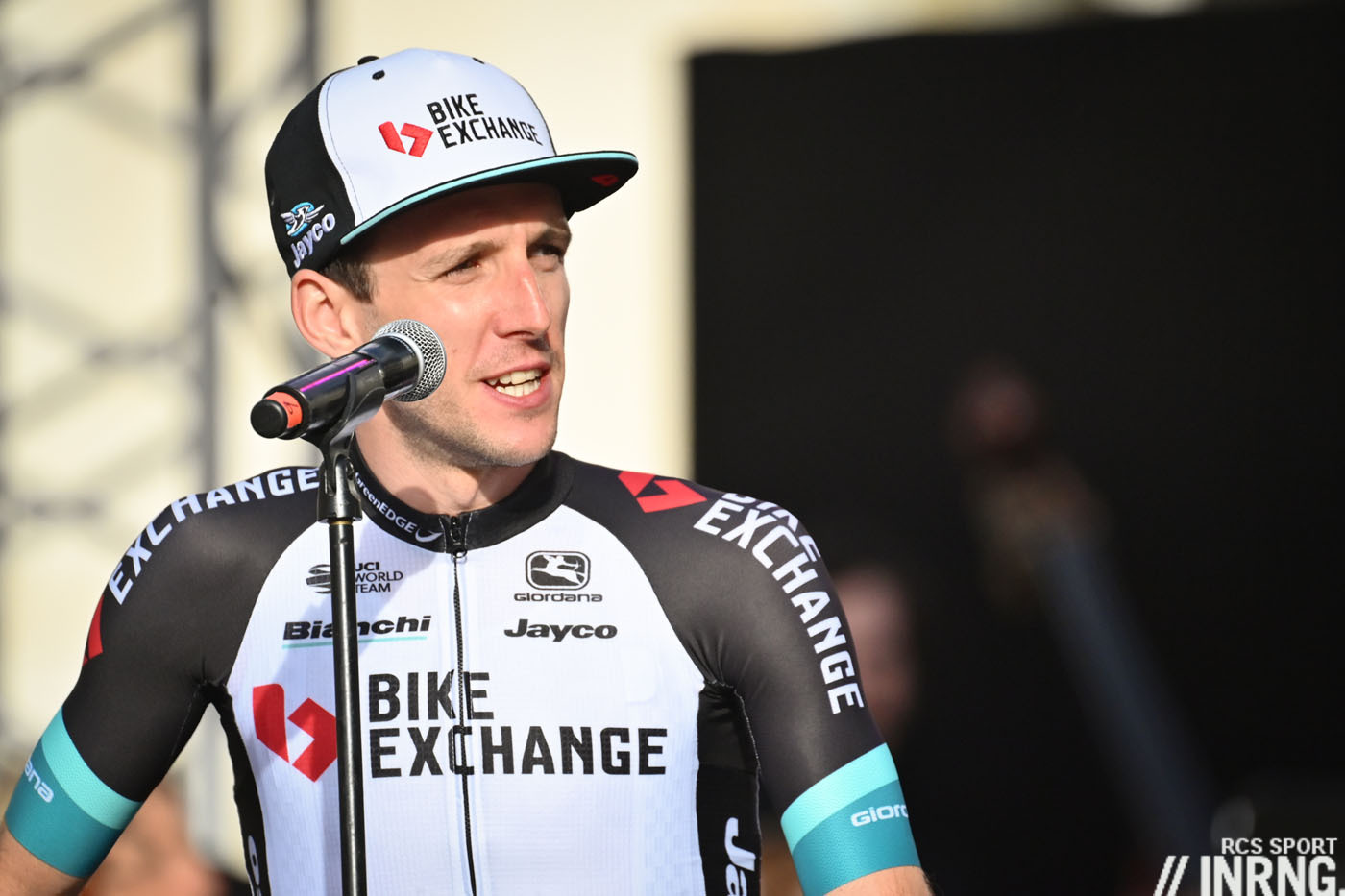
Team Bike Exchange (Australia, Switzerland) are named after Bike Exchange, an Australian online marketplace for bikes and cycling accessories that’s valued at AU$ 73 million on the Australian stock exchange, a firm whose income wouldn’t cover a fraction of the team budget. So it’s named after Bike Exchange rather being sponsored by it, the real backer of the team is Gerry Ryan, one of Australia’s wealthiest people thanks to his Jayco caravan business – Australia’s largest vehicle manufacturer ever since Ford and GM/Opel pulled out – and an astute investment in the Walking With Dinosaurs franchise, the result of which is prodigious wealth and he’s generous ploughed a lot of this back into Australian sport, including this cycling team. More troubling of late is a sponsorship deal with Saudi Arabia to promote tourism: was there not a single soap seller, ice-cream maker or some other harmless company willing to come onboard instead of the marketing agency of totalitarian regime? It’s not a good look for the team nor the sport.
- Greenedge began in 2012 and has struggled to land a title sponsor, it’s had Orica and Scott along the way
Astana (Kazakhstan, Luxembourg) was the capital of Kazakhstan – it’s Kazakh for “capital city” – but the city has be renamed Nur-Sultan in tribute to the country’s long term ruler Nursultan Nazarbayev who has stepped down but remains chairman of the country’s dominant political party, still The Man. The Astana name has been consistent for years but the funding source has changed, the country’s sovereign wealth fund backed the team but when rider wages became unpaid the Presidential Sports Club took over. But this was closed down last year and the Samruk Kazyna fund is back to bankrolling the team. The Astana name lives on with team but for how long? The arrival of Canadian horticultural firm PremierTech as a co-sponsor has brought new money but also rifts with a new manager from Belgium Yana Seel – the first woman to manage a team – in a power struggle with long time team boss Aleksandr Vinokourov who looks to have been marginalised.
- Title sponsor since 2007 when the team was born out of the ashes of the Liberty Seguros team which was engulfed by Operation Puerto
Team Qhubeka-NextHash (South Africa, Netherlands) features the South African Qhubeka charity which gives bikes to people so they can ride to school, carry merchandise to market and other life-changing benefits. But the charity is here to raise money via the sport rather than pay wealthy western riders. There was sponsorship from Assos, the Swiss cycle clothing brand now owned by a US private equity firm, but the team has just unveiled a five year deal with NextHash. Great news to secure such long term sponsorship but, donning Inspector Colombo’s raincoat for a moment, there’s “just one question” and that’s where is the money coming from? NextHash is in the cryptocurrency and blockchain field, all the rage but as soon as the news broke – your blogger was on a recon ride of Stage 8 – nobody’s heard of it and a quick mid-ride search online for regulatory registrations and published accounts didn’t reveal much. There are some big companies in the field awash with real cash only NextHash isn’t one of them, it’s hard to find any information on the company although it did get backing from the Dubai royal family last year; the other piece of news is a promised investment in a UK online education platform for IT workers that went down the pan a couple of months later. So the five year deal could be as much about making NextHash look like a company with a future, rather than guaranteeing the team. Account filings in different countries from related entities show modest accounts, dormant entities. One called NextHash Group in London, the first on the company’s website, had negative equity although these are rear-looking, old filings from last year and perhaps the company is on a tear now. Let’s hope so.
- It began in 2007 as MTN, the African telecoms operator and was Dimension Data and NTT
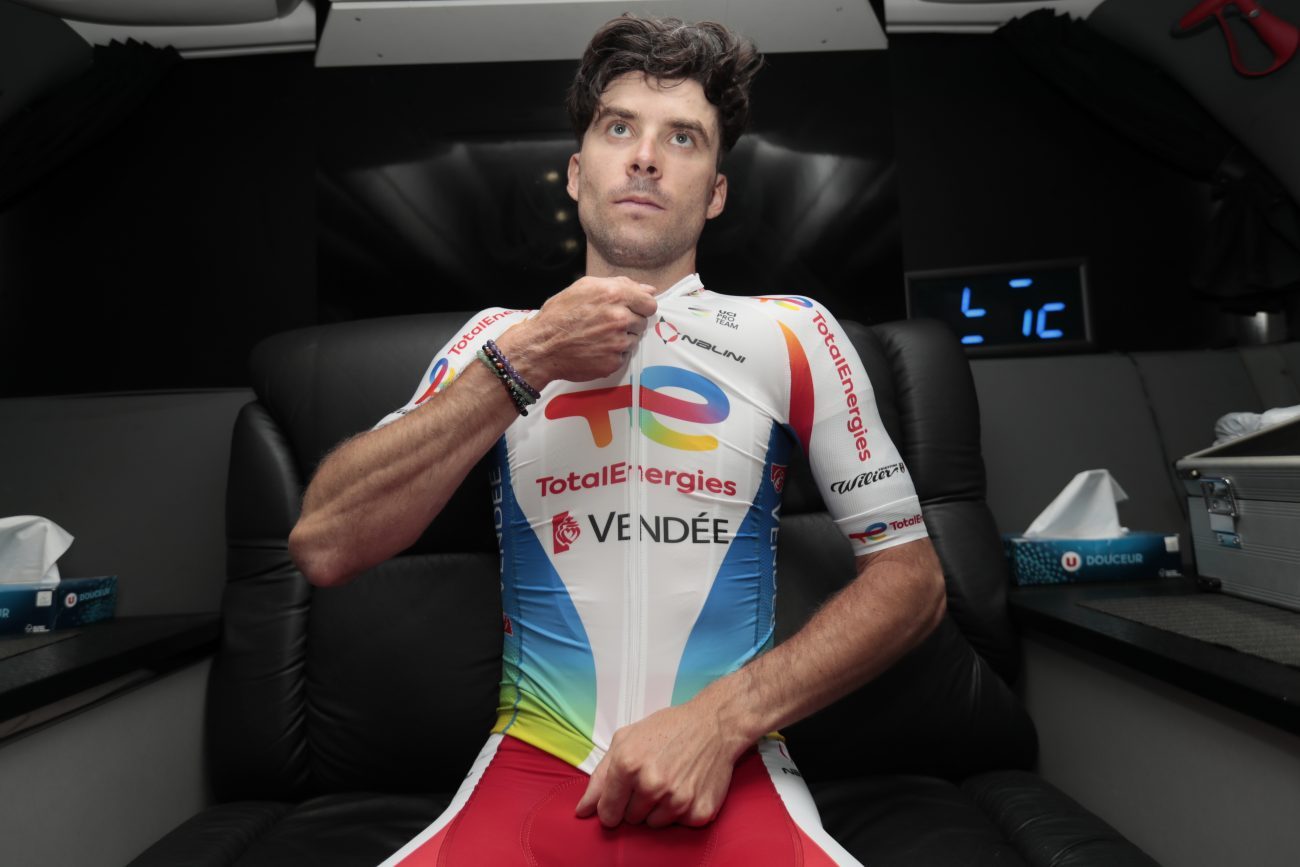
Team Total Energies (France) is the new brand for the Direct Energie after oil giant Total bought the company. It’s an alternative energy provider in France, for a long time EDF had a monopoly but now consumers can opt for other providers and Total Energies is a cheaper, slicker company. The team is a curiosity, run by Jean-René Bernaudeau out a manor house in the Vendée region it’s more family business up against multinational corporates but we’ll see what having oil giant Total does, apparently Peter Sagan is joining for 2022 and even if the Slovak is slowing it’s still a coup.
- Born out of the Vendée-U team, the pro team began in 2000 as Bonjour and was Bouygues and Europcar along the way
Intermarché-Wanty-Gobert (Belgium) is sponsored by Intermarché, a supermarket group from Brittany in France but the sponsorship deal is with the Belgian business rather than the parent company although during the Giro team DS Valerio Piva blurted out that the big holding company would be coming on board. This bodes well for a team that began as a local cycling club, the VC Ath, in the 1970s and has climbed up the rungs becoming a regional team, then a national U23 team, then a UCI Continental and last year buying the CCC team’s WorldTeam licence. Wanty does civil engineering, building bridges, doing specialist demolition projects while Gobert supplies building materials, in particular tarmac.
- It went pro in 2011 as Willems Veranda-Accent
B&B Hotels presented by KTM (France) has a hotel chain founded in Brittany with thousands of hotels in mainly in France and Germany but nine other European countries and now Brazil. It’s the kind you find next to autoroute junctions and behind out-of-town retail parks, a budget no-frills chain but if you’re asleep you can’t tell. KTM is a brand of bikes from Austria, these days a separate business from the motorbike manufacturer founded in 1932 by Hans Trunkenpolz in Mattighofen and the initials stand from Kraftfahrzeug Trunkenpolz Mattighofen.
- Launched in 2018 as Vital Concept, the farm supplies sponsor has stepped back from naming rights but remains a partner
Live the brand
If you want to build a house in northern France then you’re in the sweetspot to support pro cycling, perhaps you need to win the Belgian Lotto or FDJ lotterie first, or a take loan from Cofidis or Arkéa. or just land a good job thanks to Samsic where if you have some money left you can top up your pension with Ag2r. While the works are underway you can stay in a B&B Hotel and drop by the building site to watch workers install Deceuninck windows with help from Soudal expanding foam. Your bathroom’s going to have Hansgrohe fittings and when it’s done you can shower with Alpecin shampoo. Your kitchen features a Bora hob that sits in a Fenix worktop and you admire the flooring by Quickstep as you sip Segafredo coffee, browsing online for holidays in Israel, Kazakhstan and Bahrain but opt instead for an EF language class in Madrid where you’ll need to buy a Movistar SIM to stay online and check the gyrating value of your cryptocurrency portfolio held at NextHash. You thought of a 4×4 Grenadier but since your driveway is billiard smooth thanks to Wanty coming to lay Gobert asphalt – Nippo’s product looked superior but don’t operate in Europe – you opted for an electric Citroën instead, and insured it with Groupama. The car sits in the shade of trees planted in PremierTech peat and it is recharged it for less with Total Energies while you have a Trek cargobike in the garage which you bought through Bike Exchange during a trip Down Under where you flew back with Emirates. Later you will head over the border to a Jumbo supermarket where you might pick up some DSM sunscreen or maybe try Intermarché instead.

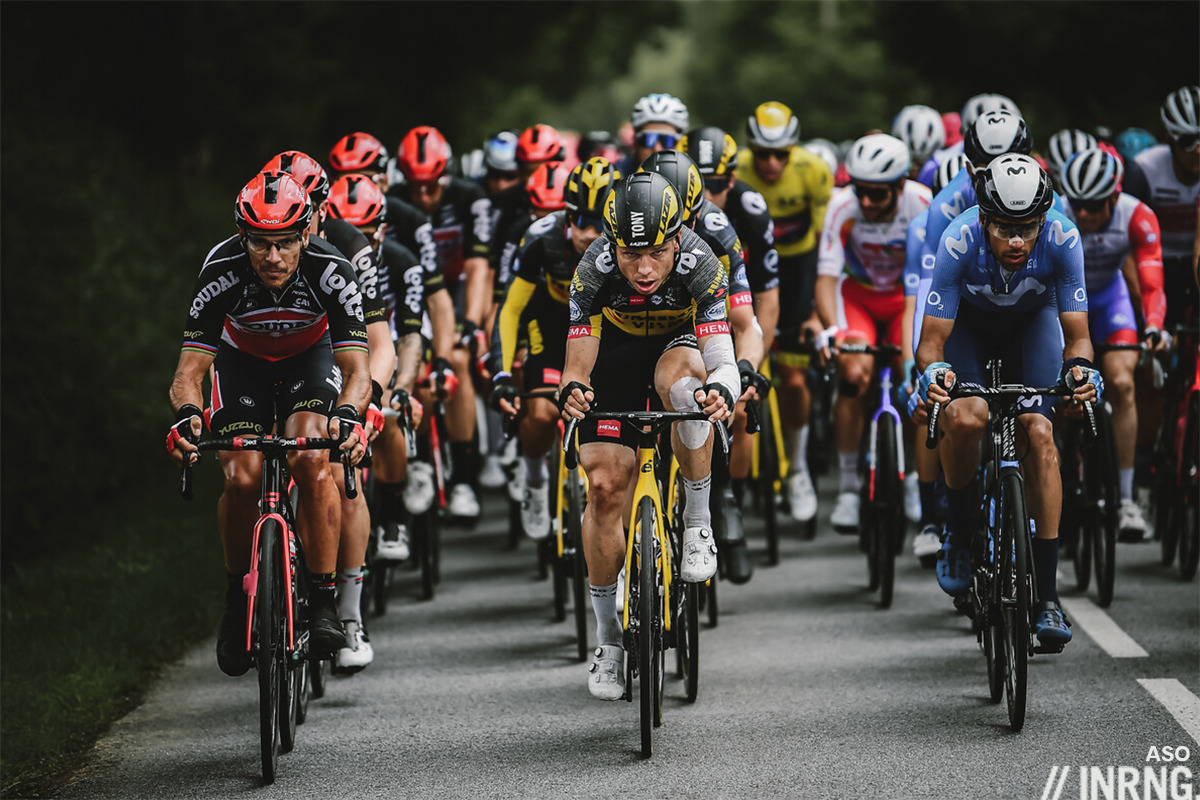
Fantastic ‘live the brand’ segment – I am always surprised this sponsorship model works when so few of the viewers can buy the products, for a global sport there are remarkably few ‘global brands’. I guess it speaks to how much these investments rely on personal connections & ties rather than pure business logic
From a sponsor’s perspective, funding a team may not just be about getting their name in front of people with the hope of them then buying their product. I recall hearing/reading something about T-Mobile’s reason for sponsoring a team was to help create a team spirit within the business as a whole.
Very true, some companies want to reach consumers but others have different commercial reasons, EF is as much about giving employees a shared team to root for, Deceuninck is lots of VIP invites to the classics for key buyers who will cover an office park with the products rather than an individual fitting them and so on.
“mercifully not rebranded today as, say, Dexterra”
chef’s kiss
Maybe this is a naive question, but I always wondered why there aren’t more bike companies doing what Trek does, and getting their names in teams. I get that some companies supply more than one team, but surely it would be a good global marketing opportunity for others?
Time to time we do see more bike sponsors enter the peloton as naming rights sponsors. Until recently we had Michelton – Scott, Bahrain-Merida, Trek-Segafrado, BMC, and even Cannondale was naming rights with EF. Not to mention Cervelo test team, Giant-Aplecin in 2015.
Its in times or stagnant wage growth (or negative) with other sponsors leaving the sport bike sponsors step up to be naming rights – usually at a cut price to keep the team on the road.
The main issue is the RoI and budget required. Most mid tier bike companies don’t generate that much revenue to then drop 10M Eu to get a naming rights sponsorship. Of this they still need to maintain a large marketing budget above the pro team to reach everyone who rides, but doesn’t care about road racing.
So in saying that, why does Trek spend their budget on sponsoring one fairly average team, when Specialized gets away with sponsoring 2 very strong teams and gets all the winning recognition of JA, PS, Remco, Agreen, Bucchman etc. Same for Canyon, they are able to sponsor Bargiuil, Nairo, tim merlier, MVPD, Valverde, Mas, etc. I don’t know why trek does it…..but it doesn’t seem sensible.
So long story short, most big bike companies would rather sponsor multiple teams. Most small ones are stretched at 1 team. Some medium sized bike brands spend their whole budget on one (ie Pinarello at Ineos).
This makes good sense, thank you! I wondered why someone like Wilier didn’t try to get their name with Astana, or Lapierre, and get better known in the US etc, but I see that there are probably cheaper ways to do that.
Sponsorship as in supplying bikes to a team alone costs manufacturers a lot of money, they must supply the bikes/frames or a mix and then pay a fee to the team, usually a seven figure sum. But naming rights, eg Orica-Scott, Bahrain-Merida can cost a lot more on top.
While I’ve always admired Jerry Ryan’s commitment, I’ve also always been so disappointed they haven’t been able to find more sponsors for Greenedge. Especially when they’ve had such a focus on marketing from the outset and two teams that have had a fair amount of success over the years. I suppose the AlUla offer was just too tempting.
Especially in the light of the Team Manuela Fundacion debacle. Must have been hard for Ryan to eat those loses especially with his Australian Hotels (he owns a few) being hurt by our constant lockdowns and no tourism.
The AlUla one is odd, because it seems to be about visiting a particular part of Saudi Arabia, rather than Saudi tourism as a whole. It’s part of a move away from oil, but whether it’s part of a move away from autocracy too…
Thanks for this, Inrng. One question: doesn’t Cofidis extend back to Renault-Gitate of the 1970s? Or was there a break somewhere in there that I’m not aware of.
That run ended with Castorama. Cyrille Guimard had a few years out and was then hired by Cofidis to build a new team.
Worried now about the Qhubeka team’s future
Likewise, it rang alarm bells the moment it was announced and the more I’ve looked into it the less reassurance I’ve got. They’ve also got a deal with fashion giant Burberry but look closely and it’s doesn’t seem to be sponsorship but a “partnership”.
You enjoyed writing that last section!
Well it was surprisingly easy, you don’t need to crowbar in too many references. Odd how the nexus seems to revolve around an imaginary house in France on the Belgian border.
😂😂😂 Nice one. Need to add something about the energy coming from freshly fracked oil as well 😉
Cycling must be one of the few sponsor driven sports that hasn’t been dominated by online gambling firms. I’m guessing that these firms can’t see a market here? Or is there some UCI regulation that prohibits certain sponsors?
Look up what happened to unibet. No gambling firm will touch a cycling team with a barge poll after that.
We’ve seen Circus and others, every Belgian team seems to have one, eg Napoleon sponsors Deceuninck-Quickstep. Promoting gambling was illegal in France but the rules have been eased. There’s a UCI rule that a gambling company can sponsor a team but they have to refrain from offering bets on races the team takes part in.
Bingoal Wallonie-Bruxelles being another example
“The silent partner is Specialized”
For Jumbo-Visma this seems to have become Pon, a Dutch mobility conglomerate that became big when mr. Ben Pon in 1947 made the smart move to become the importer of Volkswagen for the Netherlands. Oh, and he had an idea for a van too, wouldn’t mr. Porsche look into that? That became the VW Transporter (Not a myth; the actual sketch with the idea was even acquired by the Rijksmuseum.)
Pon more recently got into cycling by buying a bunch of cycling brands, including Cervélo and BBB. Now they are expanding into car and bike sharing. And now J-V is not only cycling on Cervélos with Skoda team cars, but also sometimes riding with blue front tires, the hallmark of Swapfiets, an extremely successful bike sharing company Pon partly owns. So Pon seems to have really gone in big on the team. https://pon.com/en/news/team-jumbo-visma-joins-forces-with-cervelo-skoda-and-swapfiets/
Good extra info, thanks. The team seems to have some kind of extendable credit line with Jumbo and the Heijn family, it’s not the supermarket saying “we’ve got €X million budget to spend per year for the next three years” but there seems to be room to move and make signings, renewals.
The Van Eerd family, not the Heijn family; they own Jumbo’s big rival Albert Heijn. 😉
The Van Eerds recently also bought the Hema chain of department stores and Hema is a co-sponsor of the cycling team now. I wouldn’t be surprised if their role gets bigger in the future, as Hema is more internationally oriented than Jumbo and they are a big seller of city bike essentials, like tires, saddles, lights, etc. I just saw got served an ad for kid’s bike helmet with a reference to yesterday’s stage.
Quite right on the supermarket family owners, Hema is an odd shop, the kind people go in for sausage and come out with bike lights.
“in a power struggle with long time team boss Aleksandr Vinokourov who looks to have been marginalised.”
I still wonder what this means for the future of Astana. Has Vino fallen out of favour with the Kazakh oligarchy or means kicking him out the team will lose the backing of their Kazakh sponsors?
It’s hard to tell, in the past he was so important to the team and became an honorary politician too. Now there are others Kazakhs in the team with what could be a different agenda, different alliances but it’s all backroom stuff. Lutsenko must be the key to the team and Astana sponsorship, he’s erratic but imagine he wins the Olympics road race, there’s a big reason to keep backing him and the team. Pronksiy is also promising.
Lovely segment. Can we get an article on the most bugging sponsor changes? Such as Team Sky’s “save the whales” in 2018/19 changing into Ineos “let’s feed plastic to whales” the year after.
Or would inrng get kicked off the internet for such an article? 😉
Was tempted to call the Grenadier a “clown car” but it’s no joke. To be fair to Ineos they make the plastics we all buy and it’s us all who throw it away, often into the wild and even recycling can see it just exported to poorer countries where it can be dumped, burned in fields or badly recycled in polluting plants.
I’d leave the PremierTech peat, and purchase something ‘peat free’.
Thanks for the history.
For some reason I had a Superconfex jersey (in distant Australia) back around 1990. Presumably on sale after a sponsorship change.